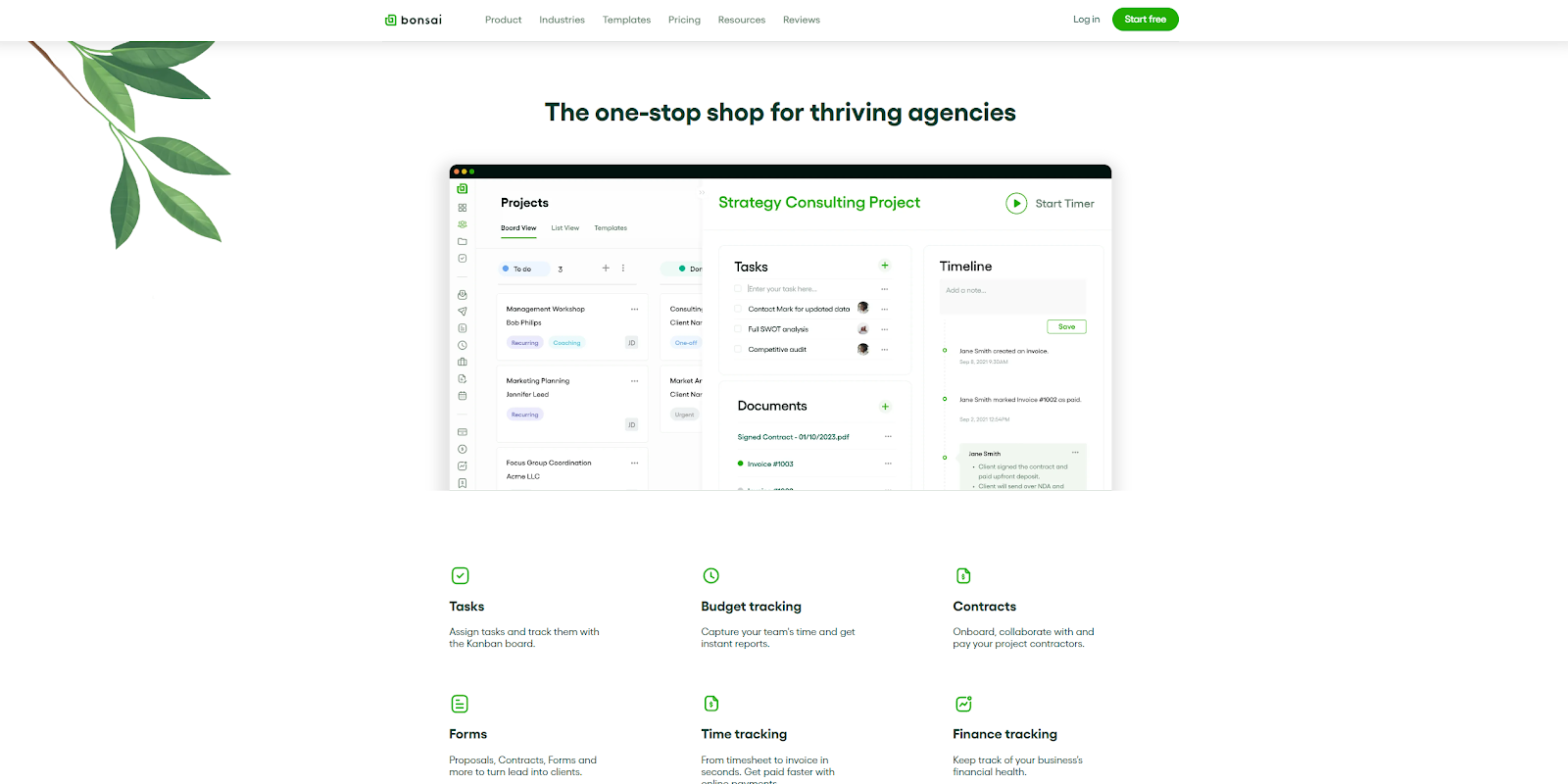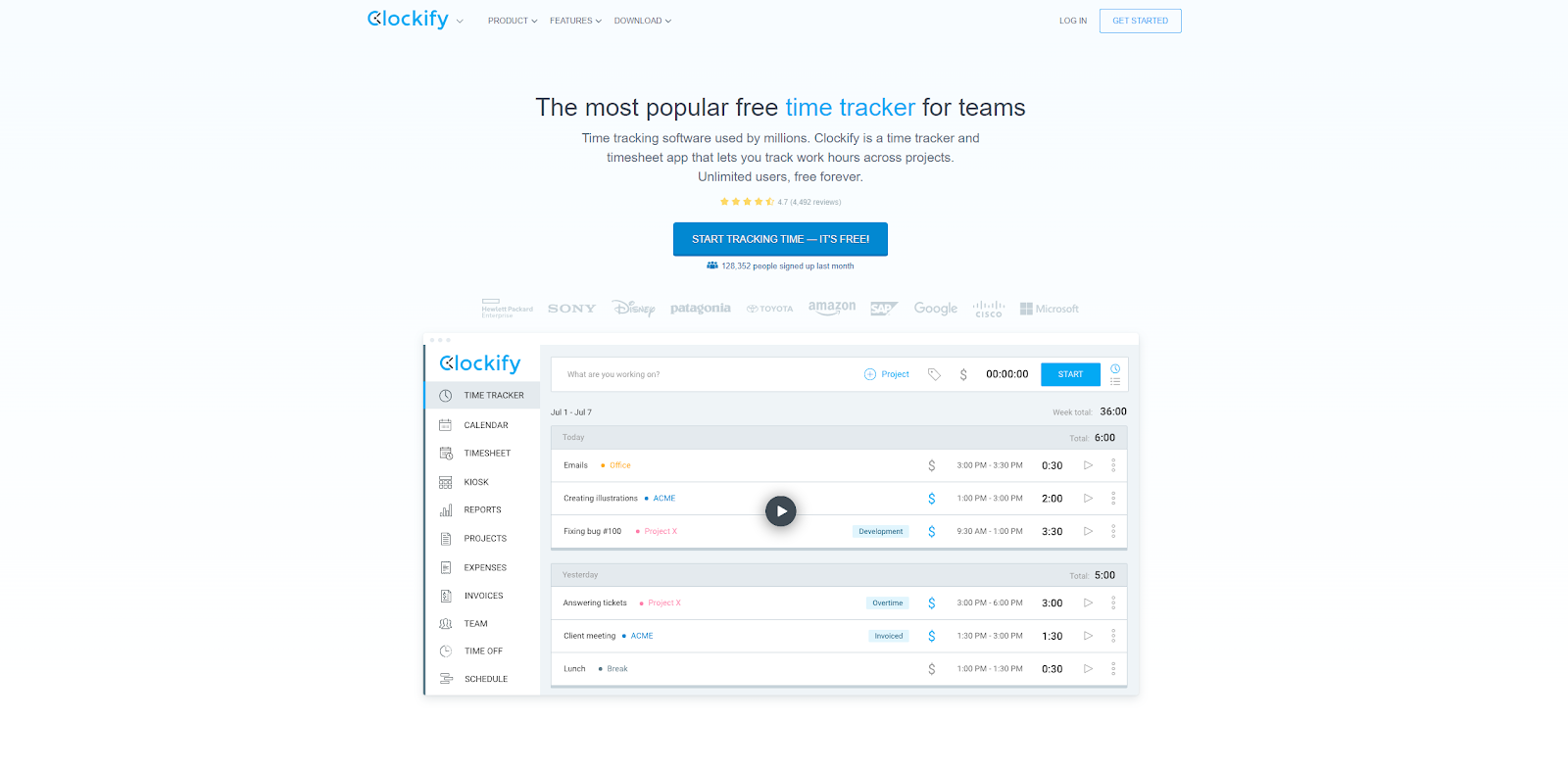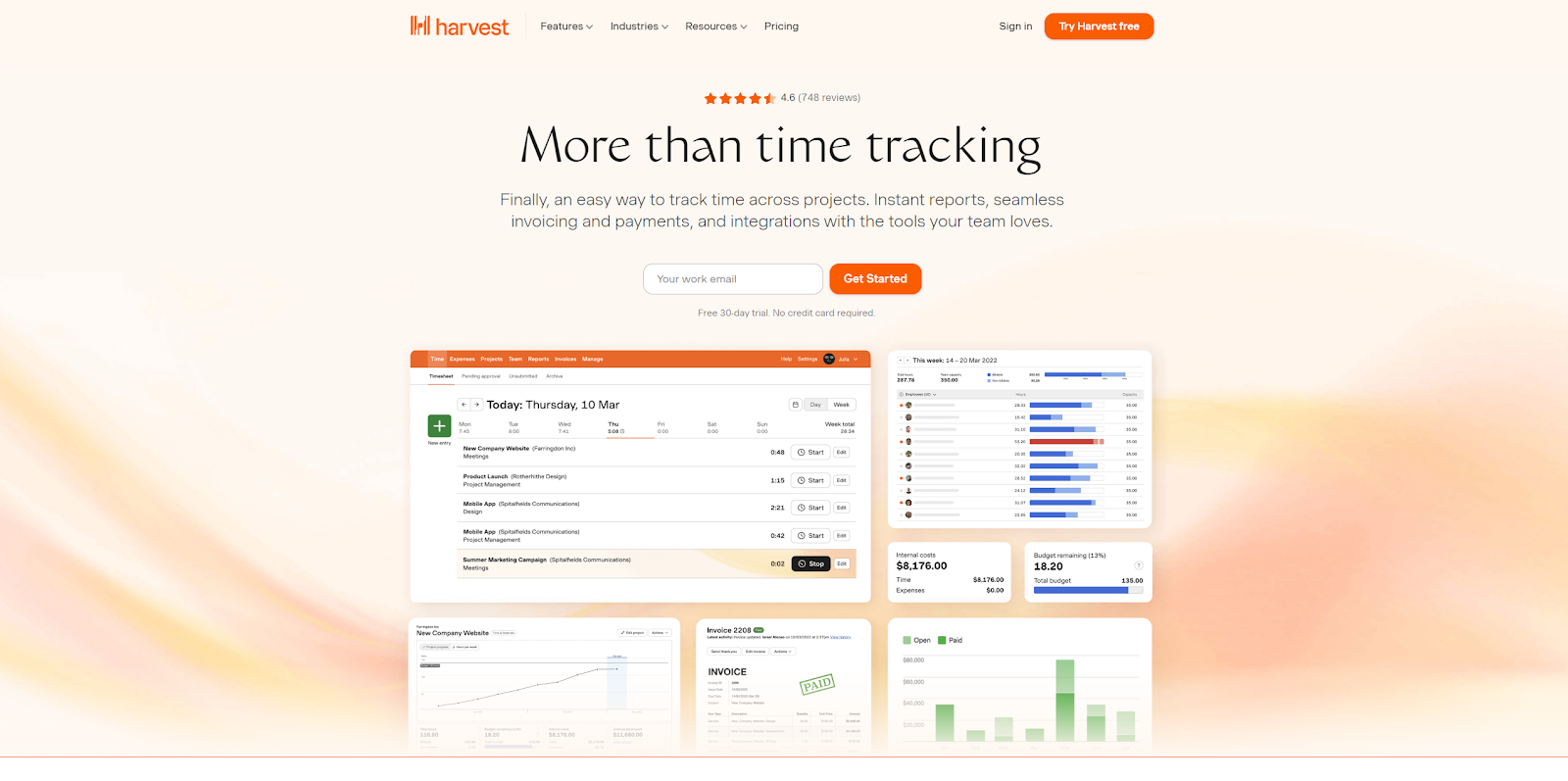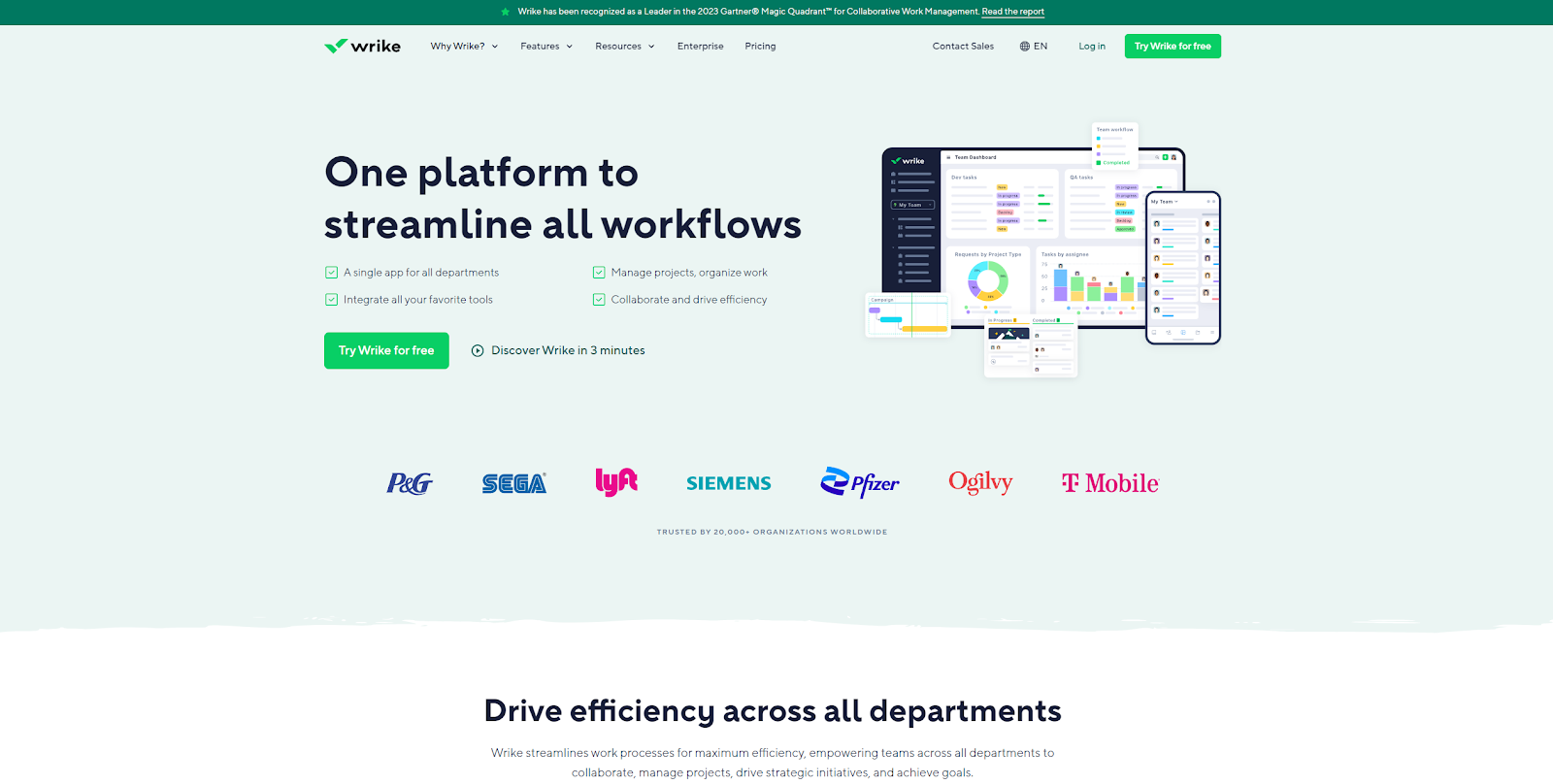Time is important to every advertising agency. It dictates jobs, schedules, and payments. Ultimately, it’s just as important as the money that funds an agency. Agencies have long sought to better manage their time and productivity by tracking it. Though this has taken on many forms over the years, one of the most efficient methods is time-tracking software.
Knowing what to look for in time-tracking software can make all the difference to the workflow of your own advertising agency. Read on to learn the benefits and limitations of time-keeping processes, and how to choose the best software from the many options available today.
What Is time-tracking?
During the process of choosing an advertising agency time tracking software, understanding various aspects of project management in software engineering can enhance decision-making and drive effective results. This holistic perspective can ensure smoother workflows, better resource allocation, and overall project success. Thus, integrating technology with the core principles of software project management is a game-changer in the advertising industry.

Seizing the moment has taken on a practical dimension in agencies. Business owners are aware that time is money and look for ways to track and therefore optimize time. It wasn’t until 1888, with William Bundy’s invention of a punch card clocking system, that large scale businesses could begin to more accurately keep track of the working hours of their employees.
From those humble beginnings, time-tracking has developed considerably. Employee timesheets have been logged, spreadsheets of data have been collated, and time-tracking software can track employee productivity down to the minute. But what is time-tracking?
Simply put, time-tracking is the process where time spent on projects, tasks, and jobs is recorded. In essence, it’s just raw data, but these logged hours can serve countless purposes. As far as agencies are concerned, proper timekeeping serves various roles:
- Agency efficiency: By accurately tracking team and project hours, agencies can better track the efficiency of both. You can see if you’re getting the most out of employees, negotiate rates with a client, and better manage their projects’ processes.
- Managing freelancers: Agency freelancers charge typically charge hourly rates and these need to be carefully managed to ensure accurate billing and maximum usage by the business. An accurate record of hours worked by a freelancer will also help better gauge jobs going forward.
- Hybrid, field work, and working from home: The post-pandemic workplace has seen rapid changes in how many agencies operate from day to day. Many have embraced alternate working arrangements to permanent in-office time, but still need a structured way to keep track of their team. In fact, 57% of agencies believe more discipline and time management is needed for remote teams.
- Project budgets: A key way of organizing project budgets is by allocating the collective number of hours a team needs to complete the task. Previous time-tracking data can be helpful in providing estimates and setting deadlines with clients, while current time-tracking keeps projects within scope and budget.
- Clients: A good client relationship is vital to any advertising agency. Being able to provide accurate hours spent on a project helps a great deal with transparency, and promotes effective budgeting with clients.
Why use time-tracking software?
Time-tracking may seem like a tedious and unnecessary process upfront. Why not spend that time working on projects instead? This can be an easy temptation, but a fatal mistake. Time-tracking is an advertising industry standard for a reason, and despite some limitations, the benefits considerably outweigh the costs.
Time-tracking that seems long and cumbersome may simply be improved by the method of time tracking used. Timekeeping software options like Bonsai can handle a wide array of tasks that seemed impossible a few decades ago. There’s a lot to gain with efficient time-tracking software.
Maximize revenue

Inefficient timekeeping leads to poor project management and either the over or under-utilization of staff. These oversights can add up and lose an agency valuable resources and revenue. Time-tracking software helps agencies manage resources and deadlines.
Timely delivery of projects and workflow transparency can also ensure good relationships with clients, leading to more jobs in the future and hopefully more clients through positive word-of-mouth.
Resource allocation
A bustling advertising agency will hopefully be working on several projects at any one given time. All these projects need to have their budgets and team resources carefully considered before starting and well-managed when working.
With time-tracking software, an agency can allocate resources and employees for greater efficiency. Knowing the demands and hours allocated to each job can better enable an agency to prioritize resources and team members. This can be, among other things, instrumental in preventing burnout among staff.
Project management
Project managers have a lot to keep track of. They need to ensure all team-members are working efficiently, that the project stays within budget, meet and collaborate with clients, and deal with any unforeseen problems.
Time-tracking software makes project management a lot easier. Previous data from jobs can give an agency or project manager better insights into ideal workflows for new projects, and help them better plan for the unexpected.
Increased flexibility
The more accurate the timekeeping of an agency, the better it will handle the unexpected. New jobs and clients may necessitate the reallocation of team members, while holdups like extra reverts can be easily accommodated for.
What’s more, time-tracking data can help an agency more easily track spikes and lulls in incoming work. If certain patterns become repeating trends, an agency can adjust resources accordingly, e.g. hiring more freelancers for anticipated busy periods like the year-end rush.
Transparency
Any good relationship needs transparency, and client/agency relations are no exception. Time theft affects 75% of businesses and clients demand accuracy and honesty as a result. Time-tracking software enables agencies to send regular reports to clients with tracked hours and project progress. Clients should also be able to collaborate during the creative process.
It’s not just clients that benefit from transparency, though. Team members and project managers can operate with better efficiency, knowing the status of a project and the hours worked by all team members. It can keep them organized, motivated, and give a sense of satisfaction on project completion.
Accurate billing
Clients like to know where their money is going. Timekeeping provides an accurate and quantifiable means of measuring agency efficiency and performance. Time-tracking software reduces the human error in more manual forms of timekeeping, and can be easily automated to seamlessly integrate with payroll and invoicing.
Team productivity
Team members on a project can benefit immensely from knowing their allocated hours. It enables them to manage their time and track their own tasks more easily. Those who don’t may often end up spending hours crafting the perfect deliverable, and either overservicing the client or exhausting the budget.
Time-tracking software also relieves employees from that oppressive feeling of top-down micromanagement. Agencies can accurately record hours and analyze deliverables without being too intrusive with status updates.
From an agency perspective, timekeeping also instills better discipline through organization. Agencies can get a better idea of who’s overworked, who’s underdelivering, and who to keep and retain. Having tracked hours can also provide tangible data when it comes time for performance reviews.
Ensure compliance
Timesheets are also for advertising agencies to stay on the right side of the law. The Fair Labor Standards Act (FLSA) of 1938, for example, requires businesses to be compliant in hours worked, overtime, leave, and in many other areas.
Reliable time-tracking software can help agencies avoid fines and lawsuits by providing tangible documentation of all employee hours through detailed reports to any government branch that requests them.
Limitations of tracking time

Hours in the creative field can be notoriously difficult to accurately track. While logging hours can suit input-based work well, it fails to accurately capture the full creative process. For example, while an agency can track writing and designing, how can brainstorming and idea generation be accurately tracked?
Abstract time can be hard to bill, even though it’s crucial to the creative process. A smart agency should include this time in jobs, giving ideas room to breathe, and informing clients of its necessity too. Logged hours aren’t always the whole picture, despite a client’s insistence on numbers.
Some hours are also adjusted by high-level creators to better suit project budgets. For that reason, they don’t spend enough time on projects, or are overworked due to underreported hours. Both can have detrimental effects on project quality. Some agencies have adopted value-based billing (which bills according to team member involvement in project success) as an alternative to logging hours.
What to look for in time-tracking software
Now you’ve seen the benefits of proper timekeeping, you may be eager to incorporate time-tracking software and streamline the workflow of your agency. Yet, there are a substantial number of offerings out there today and knowing which one to choose, or what to do look for when doing so, can be difficult.
Thankfully, there are some useful criteria to help you narrow down your choice. Ultimately, though, the best time-tracking will be the one that suits your agency size, workflow, and team.
- All-in-one offering: Good time-tracking software never stops at being just that and fulfills other roles vital to an agency too. This can include CRM, project management, invoicing, reports, and a whole range of other functions.
- Automation: An agency in the thick of several high-priority projects can have a difficult task keeping track of all the details, even before worrying about timekeeping. Good time-tracking software automates many of these processes, requiring less involvement and worry from those concerned. Time keeping automation has been shown to cut time spent on timecards from seven minutes a day to just one.
- Accessibility: Cloud-based time-tracking apps are accessible from anywhere and can keep teams and clients in the loop. Look for cross-platform support, UI that’s easy to learn and use, and cloud-based storage. A team that’s happy with software is more likely to buy into it.
- Integration: Robust time-tracking software should also be able to work well with other systems. Choose offerings that can integrate their workflow well with other programs, your calendar, and third-party apps.
- Project management: A project manager oversees jobs from start to finish, and doing an effective job means keeping tabs on project progress and all key players involved. Good timekeeping software can aid projects based on prior data, and can help get tasks underway by providing a comprehensive picture of resources and labor.
- Collaboration: Allowing clients and team members regular access to project hours, calendars and schedules can do much to foster trust and ensure all are on the same page with regards to workload.
- Templates: It can be daunting trying to find your own perfect timekeeping system. Look for time-tracking software that provides help in the form of templates, be it timesheets, or timekeeping setups to get you get started.
- Price: The price tag should never have the final say in your purchasing decision. Any software that saves your agency thousands in regained hours is more than worth the monthly fee. Still, consider the offerings and features and compare how well they align with your current budget.
The best time-tracking software for your advertising agency
Monitoring hours worked in an advertising agency is made easy with the use of specific tools. Among these tools, one can find the advertising agency software which has been proven to be significantly useful. Check out this extensive guide on advertising agency software to learn more.
When working in an advertising agency, managing time effectively is crucial. One way to achieve this is by using a digital agency time tracking software. This tool can help you monitor every employee's productivity and project timelines effectively.
In the world of advertising, it's crucial to accurately track the time spent on each project to ensure clients are billed correctly. A well-developed tool like the billable hours app can simplify this process by providing a comprehensive solution for time tracking. This allows agencies to optimize their billing strategies, improving their overall profitability.
Managing an advertising agency requires the efficient use of time. Implementing a good time tracking system for employees can drastically improve productivity. With the right software, you can maximize effectiveness and better serve clients.
Even with the benefits and knowing what to look for, it can still be helpful to have a list of the top-ranking software offerings to start you on your way. Here are some of the industry leaders when it comes to timekeeping, all with their own unique features and benefits.
Bonsai

Bonsai is an all-in-one project management platform that offers timekeeping amongst a whole range of other features. The platform helps agencies organize their projects, and accurately logs all hours spent on a variety of projects. Seamless automation enables hours to be compiled into detailed reports for clients. What’s more the client portal ensures that they’ll play an active role in collaborating on tasks.
Bonsai also supplements its robust timekeeping with thousands of templates to help you get started in finding the best system for your agency.
What makes this cloud-based app so different, though, is its versatility. Bonsai moves beyond simple timekeeping and performs several other functions. These range from CRM software that tracks client leads, to organizing entire projects via a kanban style of project management. With Bonsai, you’ll be able to manage projects, clients, and team members, across platforms and with seamless integration.
If you’re still unsure, Bonsai offers users a free seven-day trial to better acquaint you with all its features.
Clockify

Clockify is a well-known name in time-keeping software. It’s also an app-based offering, enabling cloud-based workflow with cross-platform support. It limits its key offering to timekeeping, with more limited options for project management and collaboration. The software tracks everything from hours to leave. This information can also be synchronized with calendars and compiled into client invoices.
It’s a versatile tool with and user-friendly interface, which also offers a free plan. That said, many of the advanced software features are hidden behind paywalls. Another potential drawback are frequent errors and the overall lack of customizability for timekeeping methods.
Harvest

Harvest is a sophisticated SaaS tool designed to track projects and provide accurate billing based on hours worked. While the time reports it generates may not be as complex as other offerings, these and invoices can from the app, cutting out the middle man. These invoices are also automated, which, seeing as it can reduce human error, is extremely useful.
Harvest can integrate well with many programs, like Trello and Asana, allowing agencies to customize their workflow and manage projects and teams on their own terms.
Like Clockify, Harvest also offers a free version, but again this lacks a lot of advanced functions. Speaking of, the lack of many advanced timekeeping tools means that Harvest is a simpler offering than others on this list. The app also relies heavily on manual timers, which can be inaccurate unless constantly monitored.
Hubstaff

Hubstaff is a useful software offering for agencies that do a lot of remote work. The app goes beyond time tracking, and includes GPS location from team members connected to the software through the cloud. It even goes one step further and monitors keyboard activity.
It also pads out its role with project management tools, integration with apps like GitHub, and automated payroll services.
This high level of employee tracking can also be a downside, as team members may not appreciate being under constant surveillance from management. What’s more, the cross-platform support the app offers has reported many bugs, software crashes, and feature limitations, especially with Android.
Wrike

Wrike is primarily a project management tool, but includes time-tracking as part of its functionality. Team members can log their hours online for managers and clients to easily observe. Advanced timekeeping enables projects to be better organized and insights to be gained. It also offers templates and seamless integration with software like Slack and Google Drive.
On the downside, the software’s timekeeping complexity makes for a steep learning curve for new users, and the UI only complicates this issue further. Tasks can’t be properly prioritized either. In addition, the free version of Wrike withholds many of these advanced features from users. Large amounts of data also means that the app can sometimes run slowly.
Toggl

Toggl goes for simplicity and can be perfect for smaller agencies, or those just starting out. Perhaps the biggest draw of the software is its user-friendly UI. Users can easily track time, gain insights, and the ultimate effect on profits, all through a few tab clicks on the dashboard. It also offers a host of other tools, like payroll integration.
Its primary focus is on timelines over other methods like timesheets, though, and Toggl is designed for all businesses, rather than agencies specifically. This lack of specificity impacts important agency functions particularly project management, which lacks the advanced capabilities of other offerings on this list.
Seize the moment
Timekeeping software is an incredibly powerful tool that an agency would be remiss not to use. It tracks hours and collates them into useable forms that can help maximize efficiency and better utilize team members. It comes with a range of benefits, from better resource allocation to building client trust through transparency.
The dynamic world of advertising needs dynamic solutions to suit its fast-paced environment and you should now have enough information to make the best possible choice when it comes to streamlining your agency’s workflow and seizing the moment.






